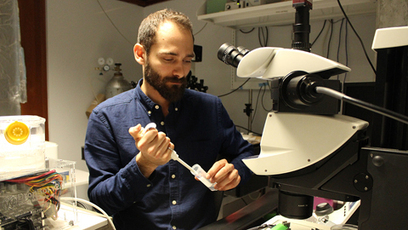The U.S. military is looking for candidates to receive face transplants. Over the past decade face transplant surgeries have been done in civilian hospitals, but it has been the U.S. Defense Department, with its obvious interest ...
Get Started for FREE
Sign up with Facebook Sign up with X
I don't have a Facebook or a X account
 Your new post is loading... Your new post is loading...
 Your new post is loading... Your new post is loading...

Drew Hodges's curator insight,
February 19, 2015 5:50 PM
This is a cool article to show the real life change that social media is creating. Before it was stated that it would take up to two weeks to detect an outbreak of a disease but now with social media it can be done in a day. This article really shows how social media is becoming a part of our everyday life and is taking on roles that we probably didn't expect it to. However with the number of users increasing it is important to have tools that help us monitor the large amount of data that is present. Its no good having all this information if we cannot harness it's true potential, like the one illustrated in this article for disease break out. |
|













